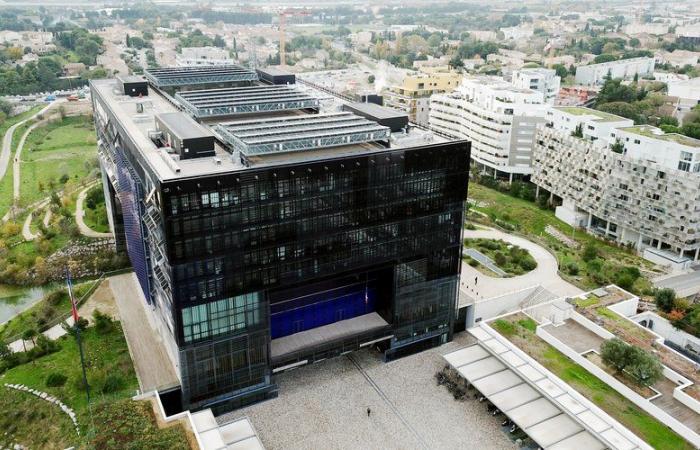
If no elections are planned, the parties will work to prepare for the municipal election of 2026, while remaining on the lookout for national events. The political year promises to be busy. Illustration in the region.
In theory, 2025 promises to be politically calm. No elections are scheduled during the year, the next deadlines being for 2026 (municipal and senatorial), 2027 (presidential), 2028 (regional and departmental) and even 2029 (European and legislative). But this calm will be all relative.
First, because the reception given to the Bayou government, with strong opposition against ministers embodying a macronism rejected in 2024, leaves uncertainty over the ability of the executive to avoid a new motion of censure. If the head of state cannot call new legislative elections before July, perhaps he will not have the choice of dissolving the national assembly again after the summer if several governments succeed one another. until then, failing to be able to build a majority coalition. “We are instructed to prepare just in case. Both in the choice of candidates, who will already have to survey their constituency and on the material level”whispers to us a regional executive from the Horizons party. Even a seasoned Renaissance activist believes the scenario “probable”. “Here it would be a game of massacre”he predicts.
A new legislative vote could indeed allow the National Rally and its Ciottist partner to extend its influence a little further in the region, even if its quasi-grand slam of 2024, from Gard (6 deputies out of 6) to the Pyrénées-Orientales (4 out of 4) passing through Hérault (5 out of 9) and Aude (3 out of 3), leaves him more bastions to defend than territories to conquer in Languedoc.
The RN is getting organized
On the other hand, this will be its objective for 2026 with the municipal elections. If this election has until now constituted a glass ceiling, except in a few municipalities, the RN hopes to capture several cities this time in view of its recent results. Or ? With whom ? This work was entrusted to a local elected official, Beaucairois Julien Sanchez, responsible for refining the strategy. “Quality is better than quantity” announced the MEP, as if to warn that his party was going to target its objectives.
This mission will be carried out from the first months of 2025 and in the region, the Lepéniste party already has town halls in its sights, particularly where deputies are well established. Julien Sanchez has already quoted “Pont-Saint-Esprit, Bagnols, Vauvert” and even Nîmes in Gard. In Hérault, along the coast, the RN is thinking of Lunel, Frontignan, Sète or Béziers. Like Carcassonne or Narbonne in Aude. So many contenders who will come out of the woods, once we are, in March, exactly one year before the election.
It's already (almost) gone
The municipal campaign is therefore already launched and will accelerate. For the moment mainly behind the scenes, even if some have already anticipated the calendar, like, in Montpellier, the rebellious MP Nathalie Oziol who, affirmed in Midi Libre that her candidacy is “a strong hypothesis”, after the significant LFI scores on the city during the last elections. A way of pulling the rug out from under the other local representatives of the radical left, including Alenka Doulain who has embodied the opposition to Michaël Delafosse since 2020. The internal battle for this leadership promises to be tough, with the environmentalists as arbiters. Weariness of work in the city, in particular, pushes a number of contenders to also believe in their chance of overthrowing the outgoing mayor, from the notary Isabelle Perrein to the minister Patricia Mirallès via the former mayor Philippe Saurel or the troublemaker Rémi Gaillard. 2025 will begin a muscular campaign.
Other towns in Hérault will be followed, each for a different reason. In Béziers, the defeat of Emmanuelle Ménard in the legislative elections showed that it could be possible to overthrow the Ménard clan, particularly the RN which had supported it until then. In Agde, all eyes are on former mayor Gilles d'Ettore who could be tempted to return to the game, despite the affair with the clairvoyant which pushed him to resign. In Sète, the Court of Cassation must rule on the possible ineligibility of François Commeinhes, a decision expected in the first half of the year which could launch hostilities even in the mayor's camp.
Hérault, Gard, Lozère…
In the Gard too, the year should allow inheritances to be decided. In Alès, it is confirmed, Christophe Rivenq having to take over from Max Roustan from this month of April. In Nîmes, it is more complex and the war waged by the president of Nîmes Métropole, Franck Proust, and the first deputy of Jean-Paul Fournier Julien Plantier, could benefit their adversaries who dream, from the left to the RN in passing through Horizons and Renaissance, to bring down the right.
In Mende, in Lozère, since Laurent Suau has decided to take over the Department, appetites – and knives – could also sharpen quite quickly.
And the regional ones?
These few examples illustrate the preparations that are beginning. And these municipal elections could lead us to anticipate another election, that of the regional ones. The president of Occitanie Carole Delga indeed indicated, in mid-December, that she could respond favorably to the requests she receives to seize the town hall of Toulouse. This prospect, which she must confirm very quickly, would open the race for her succession, with no personality emerging so far. In fact, in politics, there is no such thing as a quiet year.





